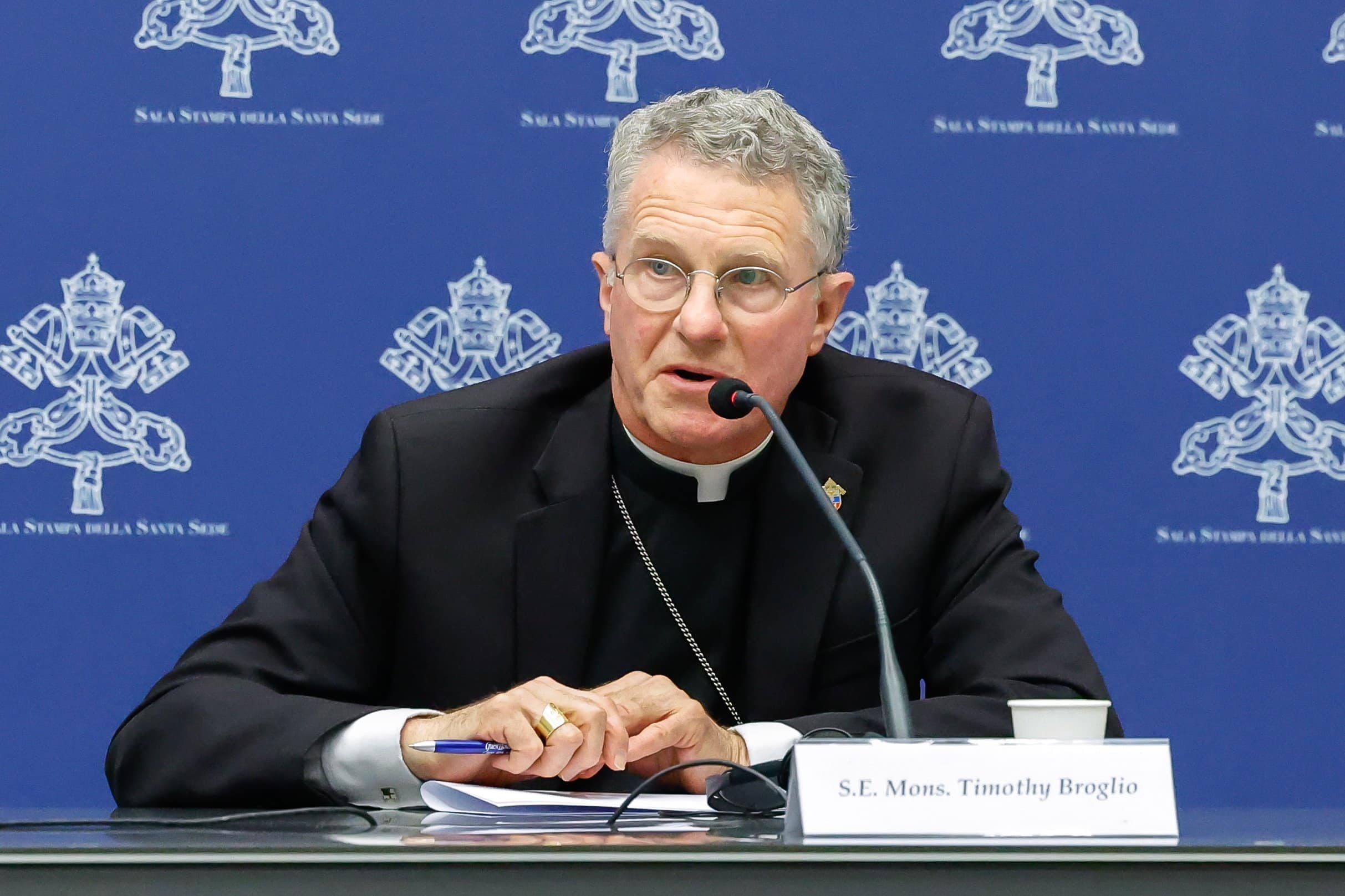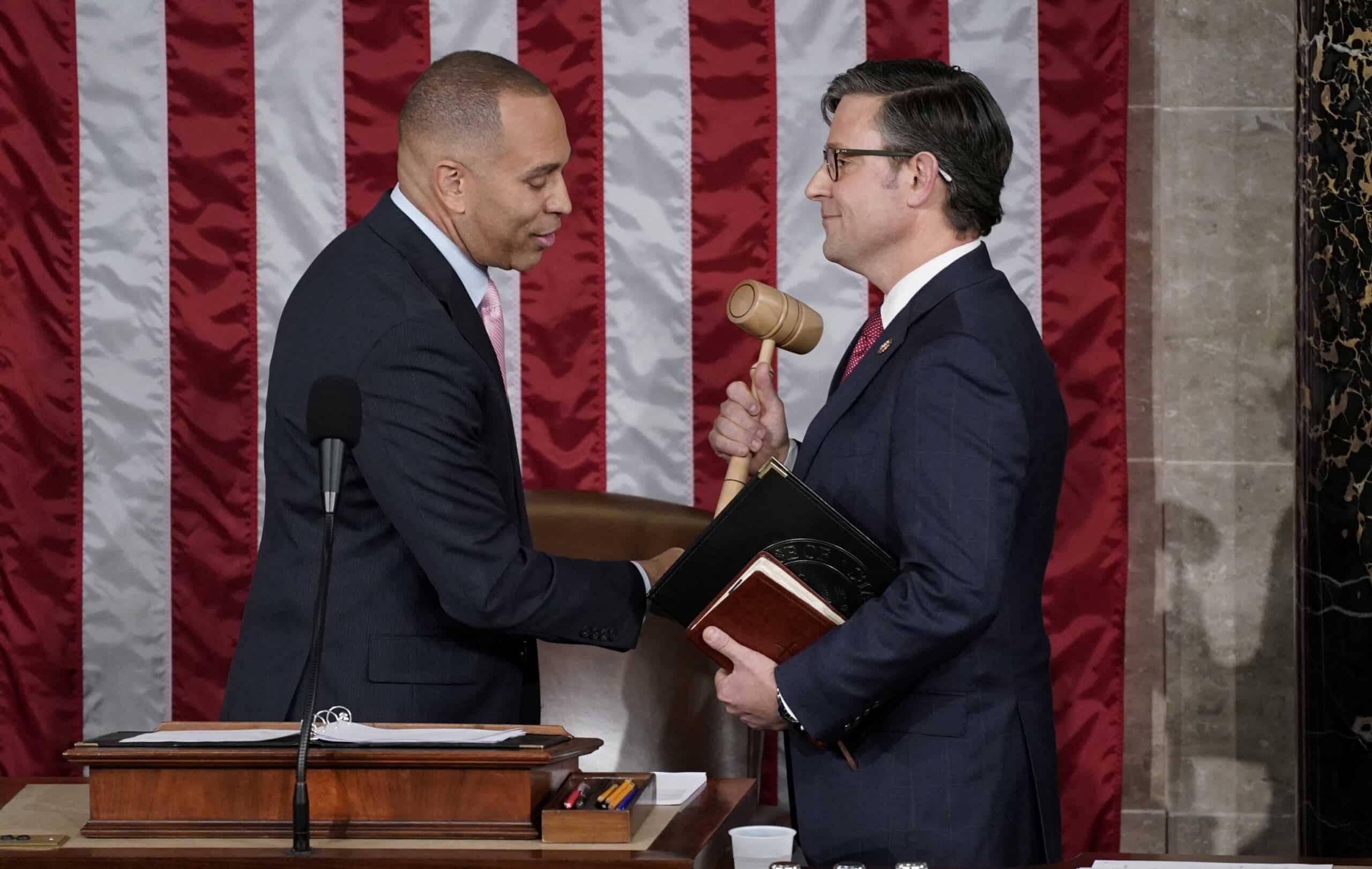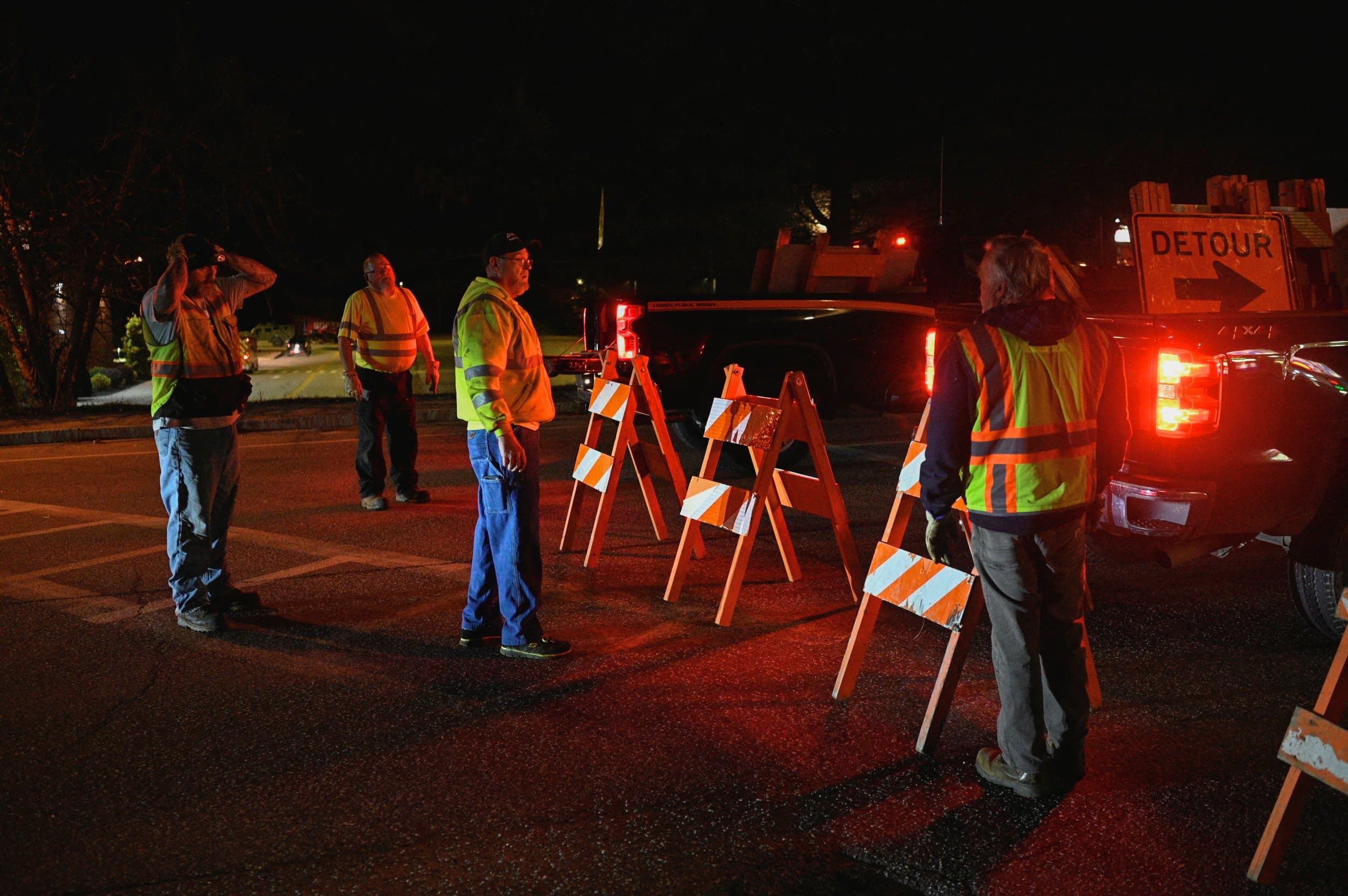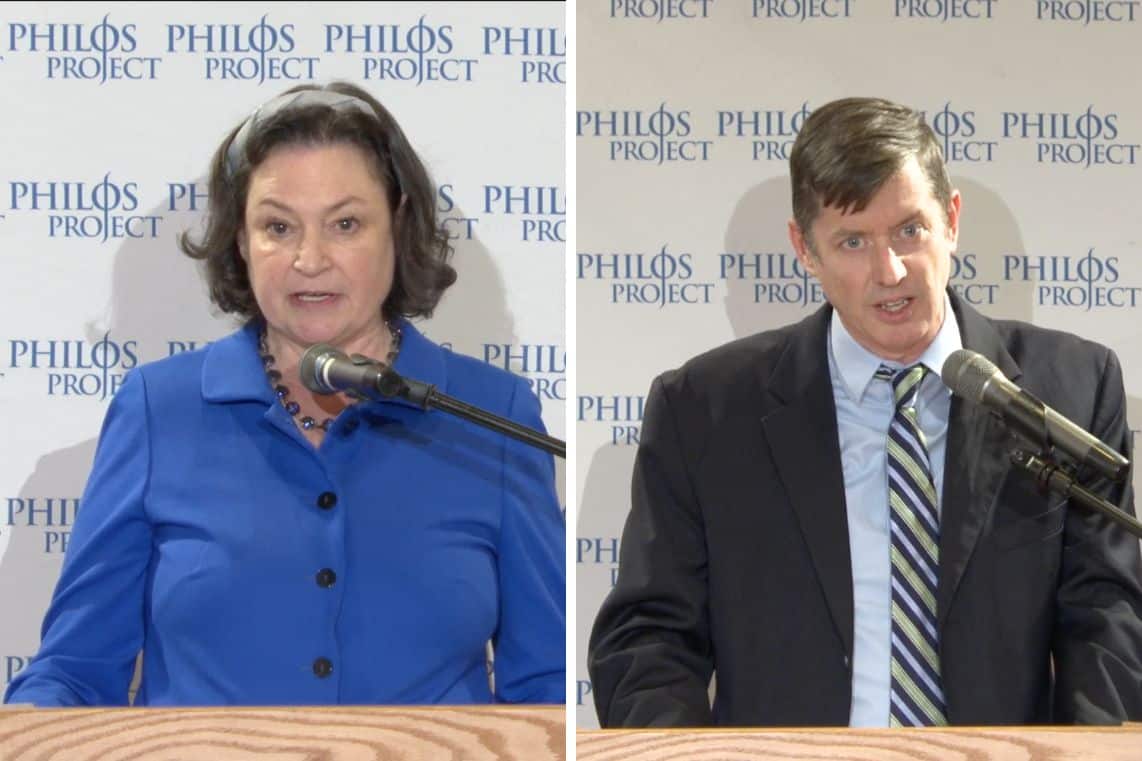VATICAN CITY (CNS) — Welcoming people into the church and helping them enter a relationship with Jesus always involves a call to conversion, said Archbishop Timothy P. Broglio, president of the U.S. Conference of Catholic Bishops.
The archbishop, who heads the Archdiocese for the Military Services, is one of the U.S. delegates to the assembly of the Synod of Bishops on synodality and was asked about synod discussions on welcoming LGBTQ+ Catholics and those in difficult marriage situations.
The invitation is important, he told Catholic News Service Oct. 25, but “in almost every circumstance in the sacred Scriptures, when Christ meets someone, in whatever situation he or she finds himself, the invitation is always to conversion, it’s always to change.”
“No one who meets Christ can walk away the same person,” the archbishop said, “so I think that has to be taken into consideration as well.”
“So, we welcome, but we try to bring people to a situation of conversion” and new life in Christ, he said, adding that “of course, we also recognize — at least I certainly recognize — that conversion is a lifelong process” for everyone.
Experience of the synod
The synod assembly was set to end with a Mass Oct. 29 and pause for 11 months before the second synod assembly in 2024.
Much of the assembly’s four weeks of work took place in small groups focused on “conversations in the Spirit,” with participants sharing, listening and praying together before discussing aspects of the synod’s main themes: synodality, communion, participation and mission.
Archbishop Broglio said he was struck by the opportunity to discuss the life and future of the church with people from all over the world.
“One of the highlights of these past three and a half weeks” has been listening to and exchanging information and viewpoints with Catholics from around the world, he told reporters later at the synod briefing. “If we do more listening, we might have a world that’s a little more open to the other, a little more respectful of the dignity of the human person.”
“So often, so much of our world is filled with shouting and with the inability to listen to the other,” whereas through listening, “even if we disagree,” he said, one learns “to recognize that that person represents someone created in the image and likeness of Almighty God.”
While it would be difficult to replicate that experience in his archdiocese, which has members of the military and their families scattered all over the globe, the assembly and its preparation showed the importance of reaching out to all Catholics and inviting them to speak, he told CNS.
Archbishop Broglio said he is leaving the synod with a greater focus on getting the archdiocesan pastoral council up and running — a real challenge given the global reach of the archdiocese. Perhaps members would meet in person once a year and then online at other times. “But I think the notion of having a personal encounter, a face-to-face encounter, would be very important.”
Getting more Catholics involved
Members of the synod assembly are expected back at the Vatican in October 2024 to continue their discussions and discernment.
While members have not finalized plans for what is to happen over the next 11 months, Archbishop Broglio said he hoped many more people would get involved. The parish, diocesan, national and continental listening sessions that took place in the two years before the assembly may have been the largest consultation of its kind ever, but they involved only about 1% of the world’s Catholics, he said.
Given the average age of members of the U.S. military, the more members of his archdiocese participate, the more young Catholics will be involved.
In a society where individualism seems to reign, Archbishop Broglio said, young Catholics want to be invited to participate and they want someone who can accompany them in their spiritual life.
The most successful things happening in the archdiocese, he said, usually involve members of the military taking the initiative of inviting friends to come to Mass or go to a Bible study.
The archdiocese has a project called Team St. Paul, which involves training young adult lay missionaries and assigning them to military bases to assist the chaplains, facilitate gatherings and reach out to their peers in uniform.
“One thing I’ve learned dealing with young people is there’s not a disinterest in religion,” he said, “but the invitation — and especially an invitation by your peer — is essential.”







